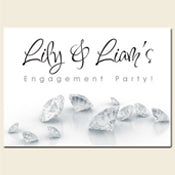What are the Alternatives to Christenings?

When a new baby arrives, many parents want to celebrate this joyful occasion with their family and friends. These gatherings are a way of welcoming the child into the world and marking the beginning of their journey through life. Traditionally, many families have chosen to do this with a christening in church, but today there are many meaningful alternatives available.
Why Some Parents Choose an Alternative to Christenings
Not all parents feel that a christening is the right choice for their family. There are many reasons for this, including:
The parents come from multi-faith or interfaith backgrounds and prefer a more inclusive ceremony.
The parents believe their child should make their own choice about religion when they are older.
The parents are not religious, are agnostic, or identify as atheist.
The parents want a more personal and less formal way to celebrate.
Despite this, many families still expect some kind of gathering or celebration, which is why alternatives such as blessings, thanksgiving services, or naming ceremonies have become increasingly popular.
Church Blessings and Thanksgiving Services
Christian denominations have different traditions when it comes to welcoming a new baby. For example:
Baptists and the Society of Friends (Quakers): These groups do not baptise babies but may hold blessing ceremonies instead.
The Church of England and Methodists: Both offer thanksgiving services. These are more informal than christenings and can take place in church, in the family home, or in another suitable location.
If you would like your child to be welcomed within a church community but without a christening, speak to your local clergy about the options available. Blessings and thanksgiving services can be tailored to feel more personal and relaxed.
Non-Religious Naming Ceremonies
For families who prefer a secular option, a naming ceremony can be a wonderful alternative. These can be carried out by:
Registrars at a town hall, registry office, or licensed venue.
Humanist celebrants, who will conduct a ceremony at a location of your choice.
Naming ceremonies are open to all, regardless of marital status, background, or belief. Parents can choose the readings, poems, or music that reflect their values and hopes for their child.
Typical elements of a naming ceremony include:
Explaining the meaning behind the chosen name.
Making personal commitments as parents to care for and guide the child.
Inviting close friends or family members to be “supporting adults” (similar to godparents) who pledge their encouragement and involvement.
While these ceremonies are not legally binding, they are deeply meaningful and often remembered for years to come. Families also receive a commemorative certificate as a keepsake.
Naming Ceremonies in Other Faiths
Beyond Christian traditions, many major world faiths also have their own naming rituals:
Judaism: The Brit Milah (for boys) and Simchat Bat (for girls) welcome children into the community.
Islam: The Aqiqah ceremony includes naming the baby, cutting the hair, and giving charity.
Hinduism: The Namkaran ceremony is one of the 16 samskaras (rites of passage) and takes place in the first few weeks after birth.
Sikhism: The baby is named during a ceremony in the Gurdwara, where the Guru Granth Sahib is opened to select the first letter of the name.
These faith-based naming traditions are an important way of affirming cultural identity and community belonging.
Planning Your Baby’s Celebration
Whatever form of celebration you choose, some practical steps will help the day run smoothly:
Choose the type of ceremony – religious, secular, or cultural.
Book your officiant – whether that is a priest, registrar, or celebrant.
Decide on a venue – from churches and registry offices to gardens or family homes.
Write your guest list – and confirm who you would like to play a role in the ceremony.
- Send invitations – let family and friends know the details of your event. At Dotty About Paper, we offer a wide range of christening invitations and naming ceremony invitations to suit your theme and style.
- Create keepsakes for the day – a christening guest book or naming ceremony guest book allows your guests to leave personal messages for your child to treasure when they grow older.
- Show your appreciation – thoughtful thank you cards are the perfect way to thank loved ones for their support, gifts, or special role on the day.
These extra touches not only make the day special but also create lasting memories for your child to look back on as they grow.
Making the Day Memorable
Celebrating the arrival of a new baby is about more than tradition—it’s about creating a moment of togetherness, joy, and love. Whether through a christening, naming ceremony, or a personal gathering at home, the event should reflect your values and your hopes for your child’s future. With thoughtful planning and personal touches, you can make the day truly memorable for everyone involved.
Recommended Articles
UPDATED ON
November 06, 2025








